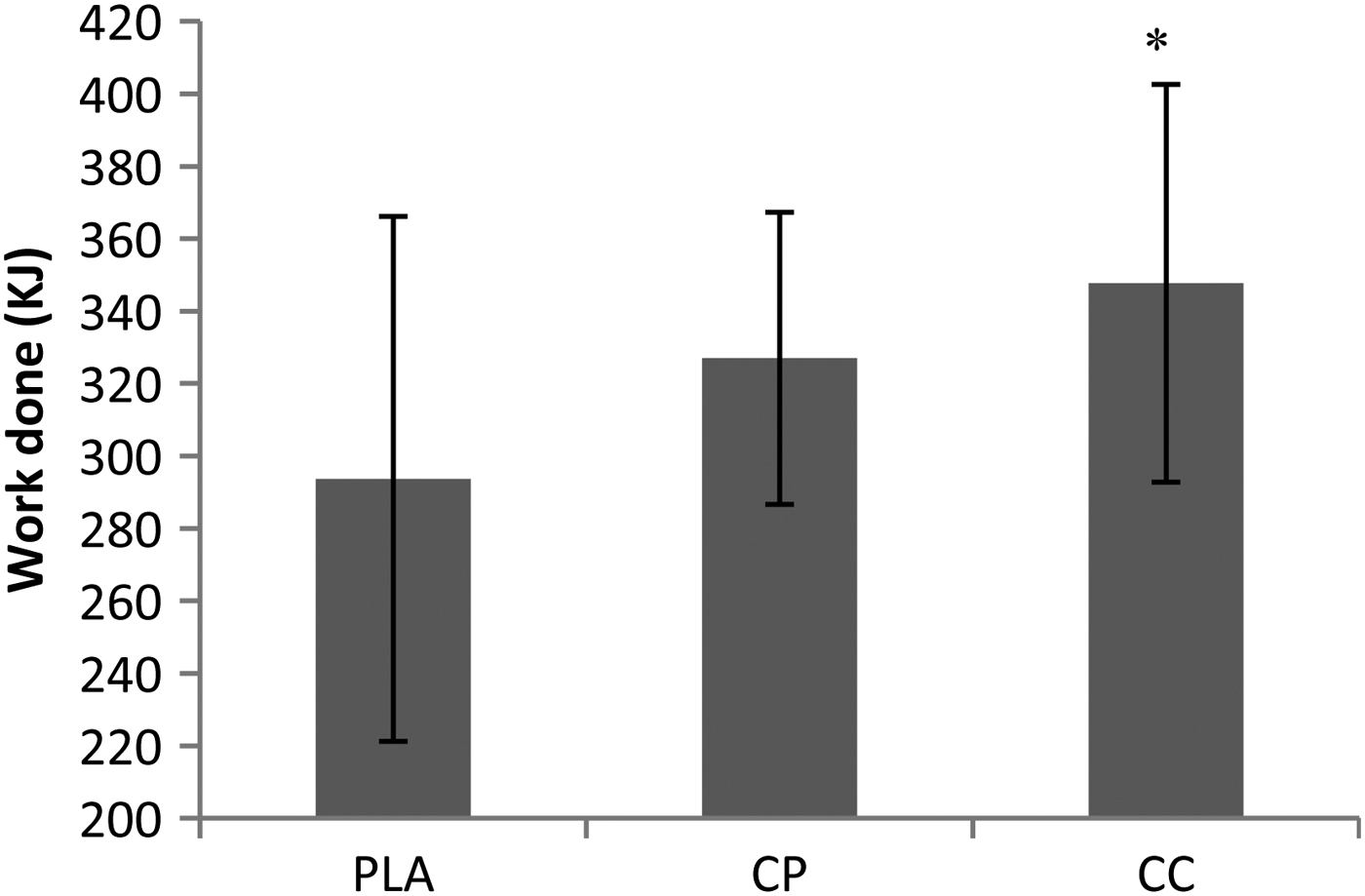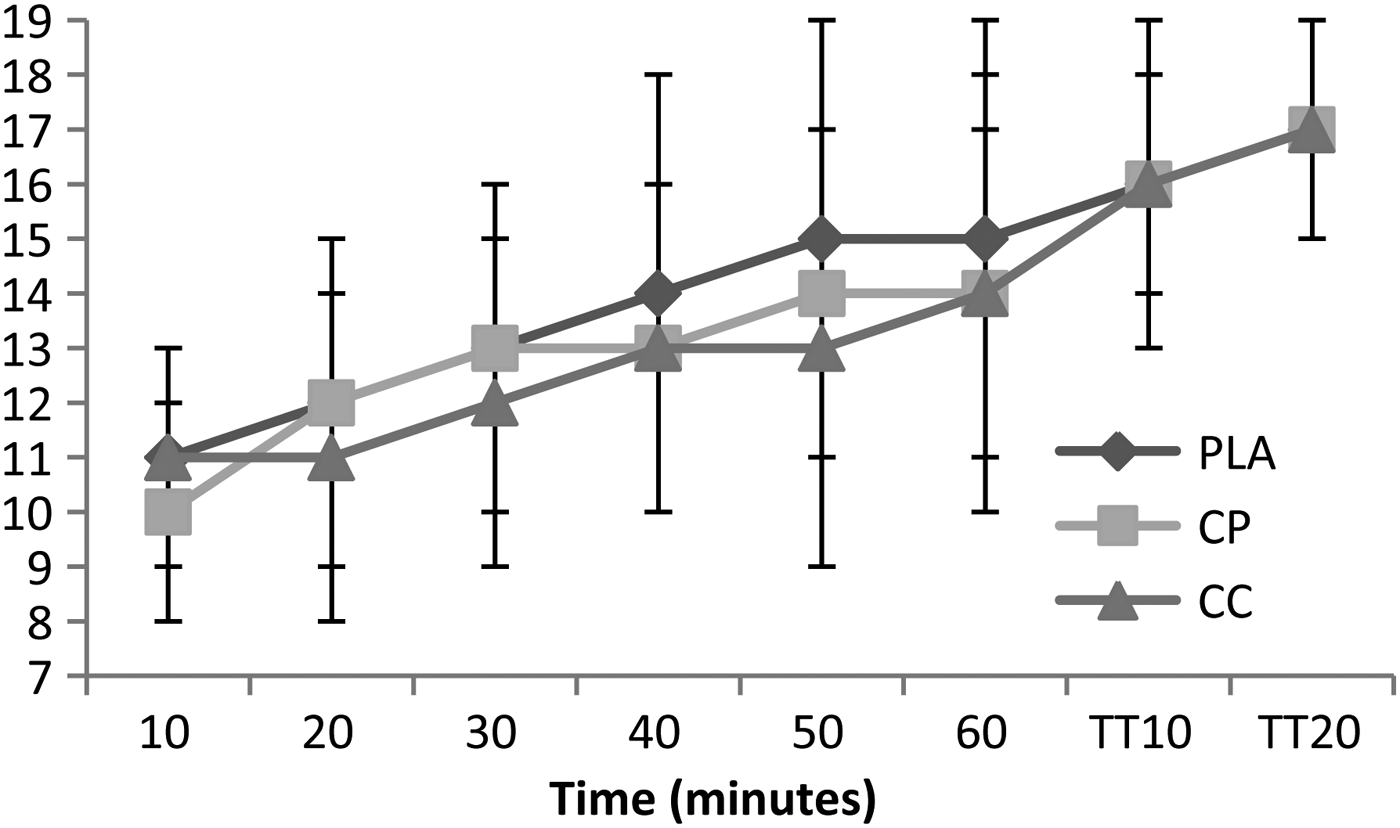Despite a considerable amount of evidence supporting the use of caffeine prior to exercise in temperate conditions(Reference Doherty and Smith1), there is evidence to suggest that moderate to large doses of caffeine (i.e. 6–9 mg/kg) ingested prior to exercise in the heat does not influence endurance performance(Reference Roelands, Buyse and Pauwels2). This response was attributed to perturbations in thermoregulation, potentially limiting the positive central effects. It is unclear at present whether the provision of a low dose of caffeine affects performance and/or thermoregulation in the same way. Therefore, the aim of this study was to examine whether ingesting low doses of caffeine prior to exercise in a warm environment could improve endurance performance compared to placebo.
With approval from the local ethics committee, eight recreationally active males (mean data: age, 20 y; body mass, 80·86 kg; height, 1·79 m; VO2Peak, 3·9 L) undertook an incremental exercise test to determine maximal oxygen uptake, a familiarisation trial and three experimental trials (placebo [PLA], single dose caffeine [3 mg/kg body mass; CP], split dose caffeine [2 × 1·5 mg/kg body mass; CC]). Trials were undertaken in a double blind, randomised order. Volunteers completed ninety minutes of exercise (60 min pre-load at 60% VO2Peak followed by a 30 minute time trial [TT]) in environmental conditions of 30°C and 50% RH.
Total work produced during the TT was greater in trial CC compared to PLA (Fig 1, P = 0·022). There was no statistical difference between CP and PLA (P = 0·318). Core temperature was not influenced by caffeine treatment (P = 0·151), with mean values of 38·77, 39·06, and 38·80°C recorded at the end of the time trial in the PLA, CP, and CC trials, respectively (P > 0·05). Skin temperature was not influenced by caffeine treatment (P = 0·41). Despite an increase in performance, the CC trial showed a reduced perception of effort than PLA (Fig 2, P = 0·34), with no differences in thermal stress apparent between trials (P = 0·517).

Fig. 1. Total work completed during time trial.

Fig. 2. Rating of perceived exertion. * P = 0·022 compared to PLA. Main effect for trial (CC vs. PLA) P = 0·32
These data confirm the results of a recent study(Reference Pitchford, Fell and Leveritt3) and lend support to the view that the provision of a low dose of caffeine may prove a prudent strategy to enhance endurance performance in the heat. It appears that lower doses do not appreciably alter core or skin temperature during exercise, perturbations which have previously been observed when higher doses have been consumed prior to exercise in the heat.






